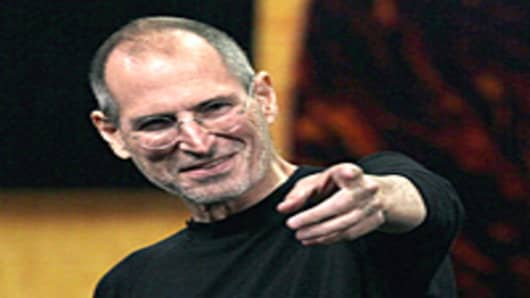Reading tributes to the fallen tech hero, Apple'sSteve Jobs, from around the globe, two things are clear to me — his successor is likely to be in the clean energy sector and working somewhere other than the US.
Oh I'm not saying Americans have lost their inventive mojo, just that I have met fifty innovative, inspirational thinkers from other nations for every one working equally hard in Silicon Valley or MIT. And most are tackling the greatest challenge to our environment and economy — securing sustainable, clean energy for the 7 billion people now living on earth and the 10 billion we'll have by 2050. So where will solutions come from that will fundamentally alter how we harness, deliver, and use energy, just as Jobs fundamentally changed his industry? Let's look in Geneva, Beijing, and Abu Dhabi.
I'm speaking this week at the European Future Energy Forum in Geneva, Switzerland and astonished by the number of clean energy innovators from all around the world gathering here, but especially surprised by the domestic companies. Solar energy leadership from a country that is shadowed by Alps and covered in clouds and snow much of the year? Yes, because even in climates like this, these innovators are proving you can run homes, factories, and even yachts on nothing but energy from the sun.
Last month in China, I toured the Tianjin "eco-city" near Beijing that is taking sustainability innovations from hundreds of inventors and putting them to work in a real world setting. It will take this kind of scale to commercialize disruptive technologies to bring down cost and teach more users about the benefits — much like Steve Jobs taught us all to use a smartphone.
Finally, every year in Abu Dhabi at the World Future Energy Summit, I have seen brilliant innovations showcased and adopted for use on all parts of the globe. Many of these technologies are also being proven at scale by the Masdar initiative there. Masdar, which means ‘the source’ in Arabic, is a new city that holistically integrates many different elements required for the rapid and agile R&D of renewable energies and sustainable living models.



